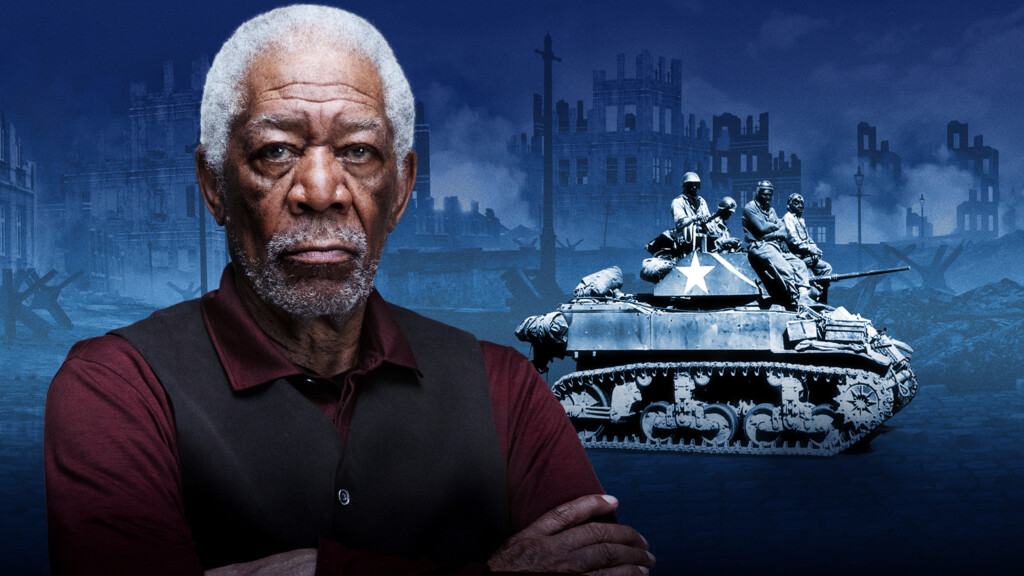
It’s a difficult time right now when it comes to politicians attempting to erase Black folks from American history, but filmmakers and TV producers are stepping up.
Proverbially spreading apart his shirt and revealing the Superman logo is world famous icon Morgan Freeman, who has taken it upon himself to highlight other superheroes of World War Ii.
The Oscar winner executive produced the upcoming documentary, 761st Tank Battalion: The Original Black Panthers, which will premiere on The History Channel on August 20 at 8 pm.
The documentary will chronicle the first Black tank unit that served in combat amid WWII. Additionally, it examines the battles in the war, as well as home.
The Root exclusively premiered the trailer for this project, and it features Freeman speaking with the last surviving member of the 761st and an interview with the first Black Secretary of Defense, Secretary Lloyd J. Austin III.
“I know that my uncles served in World War II, but for whatever reason, their records don’t exist. It doesn’t make any sense that American history doesn’t include Black people to the extent that it should,” Freeman said in the trailer. “The 761st was the first Black tank battalion in U.S. military history. I’ve been basing this story about the 761st forever.”
Here is the original synopsis:
“The 761st Tank Battalion, better known as the First Black Panthers, was the only Black tank unit to see combat in World War II. Formed in the spring of 1942, these units of soldiers played a significant role in military operations during the war against Nazi Germany. However, while the majority Black battalion was fighting one battle overseas, they were simultaneously fighting another in their home country — against racism, segregation, and inequality. Despite facing unprecedented adversity, these brave men lived up to their tenacious motto,’ Come Out Fighting’ and became one of the most accomplished tank battalions in the U.S. military.”
We are living in the Twilight Zone these days, especially with politicians denying the struggles of Black Americans throughout the country’s history. When renowned pillars like Freeman are telling a story like this, the contributions from historians and experts can’t be denied. Simply put, the 761st existed, changing the scope of the war.
The project highlights information that all those folks trying to change textbooks and curriculums haven’t even thought of.
“I really wanted to see the 761st finally get the recognition they deserve,” Freeman said. “Because these men really did come out fighting.”



